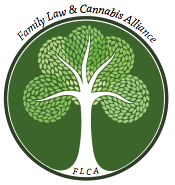Office of Child and Family Services (OCFS)
Overview
Provides OCFS policies, procedures, practice model, a handbook for parents, and more.
Statutes and Regulations
Child Abuse and Neglect
- Me. Rev. Stat., tit. 22, § 4002 — Definitions.
The definitions used by OCFS and family court in child protective matters.
- Me. Rev. Stat., tit. 22, § 4004 — OCFS Authorizations & Duties.
What OCFS is generally authorized to do in the course of their task of preventing child abuse and neglect; the duties of OCFS in carrying out its mandate “to protect abused and neglected children and children in circumstances that present a substantial risk of abuse and neglect, to prevent further abuse and neglect, to enhance the welfare of these children and their families and to preserve family life wherever possible.”
- Me. Rev. Stat., tit. 22, § 4011-A — Reporting of suspected abuse or neglect.
A list of “mandated reporters,” or professionals who are required to report known or suspected child abuse or neglect to OCFS, and the rules for when and how they must report.
-
Me. Rev. Stat., tit. 22, § 4004-B — Infants born affected by substance abuse or after prenatal exposure to drugs.
OCFS acts when a child has been born affected by substance abuse or suffering withdrawal symptoms, whether or not the exposure was to legal or illegal drugs, “regardless of whether or not the child has been abused or neglected.” These are the steps OCFS must take in response, under Maine law.
- Me. Rev. Stat., tit. 22, § 4011-B — Reporting of prenatal exposure to drugs.
Requires health care providers involved in the delivery of or care of an infant, including midwives, to make a report to OCFS when they know or have reasonable cause to believe the infant has been born affected by substance abuse or suffering withdrawal.
- 10-148 Me. Code R. ch. 201 — Procedures for substantiation of abuse & neglect; Appeals.
Regulations governing OFCS process of substantiating allegations of child abuse or neglect, and process for appealing those findings.
- Me. Rev. Stat., tit. 22, § 4055 — Circumstances that are grounds for termination of parental rights.
In cases where the child has already been taken from the home into foster care, the court may assume that a parent with a “chronic substance abuse problem” and “the parent’s prognosis indicates that the child will not be able to return to the custody of the parent within a reasonable period of time”, they may have their parental rights legally terminated by the court.
State Marijuana Laws
Decriminalization
- Me. Rev. Stat., tit. 22, § 2383 — Marijuana possession. (eff. April 14, 2010)
Maine has had a “decrim law” for decades. Possession of up to 2 1/2 ounces is only punishable by a sliding scale fine depending on quantity, not to exceed $1000. There is no protection in the law for parents or guardians.
Medical Marijuana
- Me. Rev. Stat., tit. 22, § 2421 et seq. — Maine Medical Use of Marijuana Act (eff. Dec. 29, 2009)
Maine’s original medical marijuana legislation contained no provision to protect parents, pregnant women, or legal guardians. In 2009, voters passed legislation to fully enact a medical marijuana program in Maine. The 2009 law first included some protections for parents, stating that a person may not be denied custody or visitation of a minor for being a medical marijuana patient “unless it creates an unreasonable danger to the minor that can be clearly articulated and substantiated.” This language was repealed in early 2010 and replaced with more protective language (see below).
- Me. Rev. Stat., tit. 22, § 2423-E — Parental rights and responsibilities, contact with a minor child. (eff. Apr. 9, 2010)
The current version of the law states that a patient acting in compliance with the program’s rules may not be denied parental rights or responsibilities, or contact with a child, unless his or her conduct is contrary to the child’s best interests.
- 10-144 Me. Code R. ch. 122 — Regulations for Maine’s Medical Use of Marijuana Program (eff. Aug 4, 2010)
Rules from the Department of Health and Human Services (DHHS) Division of Licensing and Regulatory Services (DLRS) for Maine’s medical marijuana program including registration and cultivation. Section 2.1.5.3 repeats the language in § 2423-E, above.
Government website with more information on the program including full rules and policies.





